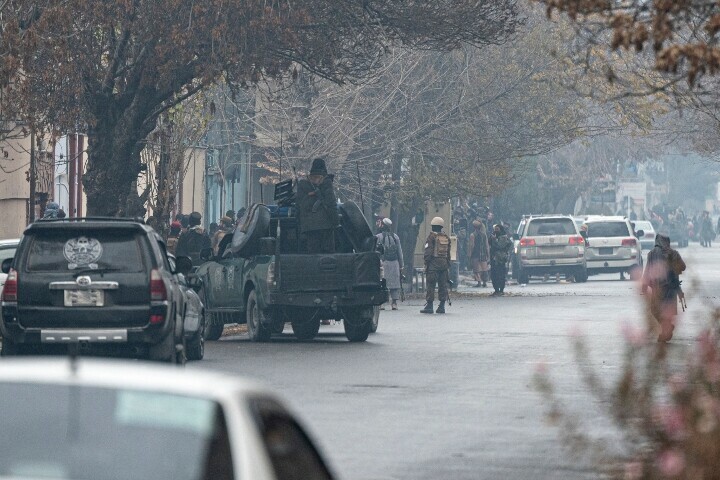At least three people were killed when gunmen attacked a hotel popular with Chinese business people in the Afghan capital Monday, with witnesses reporting multiple blasts and several bursts of gunfire.
Smoke could be seen pouring from the multi-storey Kabul Longan Hotel as Taliban security forces rushed to the site and sealed off the neighbourhood.
The Taliban claim to have improved security since storming back to power in August last year but there have been scores of bomb blasts and attacks, many claimed by the local chapter of the Islamic State group.
Italian non-governmental organisation Emergency NGO, which operates a hospital just one kilometre from the blast site, said it had received 21 casualties, including three people dead on arrival.
It did not say if those dead were civilians or involved in the attack.
A Kabul police spokesman said three attackers were killed and one suspect arrested, blaming the assault on “mischievous elements”.
“All the guests of the hotel have been rescued and no foreigner was killed. Only two foreign guests were injured when they threw themselves from an upper storey,” chief Taliban spokesman Zabiullah Mujahid added on Twitter.

Video circulating on social media showed people clamouring out of windows on the lower floors of the building, with the hotel sign — in English and Chinese — clearly visible.
Another video showed huge flames licking out of another section, with thick plumes of smoke.
A helicopter also made several passes through the area.
The hotel is popular with Chinese business visitors, who have flocked to Afghanistan since the Taliban’s return in pursuit of high-risk but potentially lucrative business deals.
China, which shares a rugged 76-kilometre (47-mile) border with Afghanistan, has not officially recognised the Taliban government but is one of the few countries to maintain a full diplomatic presence there.
Sensitive border
Beijing has long feared Afghanistan could become a staging point for minority Uyghur separatists in China’s sensitive border region of Xinjiang.
The Taliban have promised that Afghanistan would not be used as a base for militants and, in exchange, China has offered economic support and investment for Afghanistan’s reconstruction.
Maintaining stability after decades of war in Afghanistan is Beijing’s main consideration as it seeks to secure its borders and strategic infrastructure investments in neighbouring Pakistan, home to the China-Pakistan Economic Corridor.
The Taliban are at pains to portray Afghanistan as safe for diplomats and business people but two Russian embassy staff members were killed in a suicide bombing outside the mission in September in an attack claimed by IS.
The group also claimed responsibility for an attack on Pakistan’s embassy in Kabul this month that Islamabad decried as an “assassination attempt” against the ambassador.
A security guard was wounded in that attack.
Despite owning the rights to major projects in Afghanistan, notably the Mes Aynak copper mine, China has not pushed any of these projects forward.
The Taliban are reliant on China to turn one of the world’s largest copper deposits into a working mine that would help the cash-strapped and sanctions-hit nation recover.
AFP Published December 12, 2022








